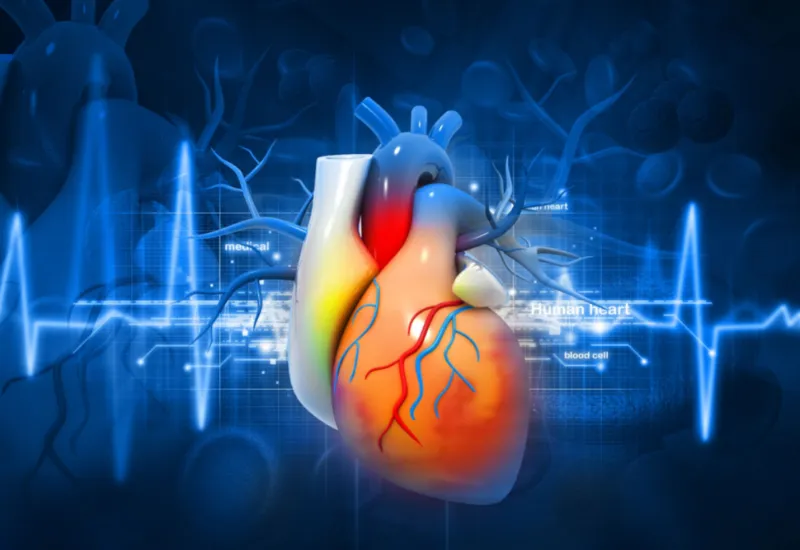Magnetic Resonance Imaging is one of the most commonly used diagnostic procedures with wide-ranging benefits. An MRI is a non-invasive and non-painful procedure that uses a powerful magnetic field, strong radiofrequency pulses, and a specialized computer to produce detailed images of the internal body structures that cannot be viewed otherwise through conventional procedures such as CT scan or X-ray imaging. This procedure does not use X-rays or other radiations.
The detailed images produced by an MRI scan play a vital role in detecting disease and examining the body. An MRI can be performed on several body organs and parts, such as the brain and spinal cord, breasts, heart, blood vessels, bones and joints, internal organs including the womb, prostate gland, liver, etc. This writing delves into what a cardiac MRI is, its uses, and how much a cardiac MRI with and without contrast costs. Let's get started!
What is a Cardiac MRI?
Cardiac magnetic resonance imaging is a medical procedure that uses radio waves, a strong magnetic field, and a specialized computer to produce in-depth images of the structures within and surrounding the heart. A Cardiac MRI is typically used to monitor or detect cardiovascular disorders or evaluate the heart's functionality and anatomy in patients with cardiac complications both at birth and after birth.
Although a cardiac MRI does not use any radiation, it is crucial to communicate with your healthcare professional about any recent surgeries, prior health complications, pregnancies, or allergies before getting tested. The magnetic field used in this procedure is not harmful, but it may cause some medical devices in the body to malfunction. A majority of orthopedic implants do not pose any crucial risks. Nevertheless, telling your healthcare provider about any metal or implants you may have in your body is vital.
What is a Cardiac MRI used for?
Some common uses of cardiac MRI include the following:
- Assessing the functioning and anatomy of heart chambers, size of blood vessels, blood flow through major blood vessels, heart valves, and functioning of surrounding structures of the heart.
- Diagnosing cardiovascular disorders such as infections, tumors, or inflammatory conditions.
- Evaluating the progression of ailments over time and the effect of treatment procedures on them.
- Chalking out the most suitable treatment plan for cardiovascular disorders.
- Evaluating the recoverability and extent of previous myocardial infarction.
- Looking into arrhythmia or unexplained cardiogenic syncope.
- Monitoring congenital heart diseases.
How Much Does a Cardiac MRI Cost?
The typical cost of a cardiac MRI varies between $1,000 and $5,000, depending upon several factors such as the complexity of the medical condition being investigated, the patient's geographical location, whether the procedure is being performed in a medical facility or a hospital, and the type of insurance a patient holds. For example, a cardiac MRI's cost ranges from $2,587 to $3,065 in Los Angeles and starts at $1,300 in Brookline, MA.
The cost of this procedure typically includes a $100-$200 fee for the medical physician's labor, along with a price for facility overhead. It also consists of the charges of a scan (performed when deemed necessary), but this expense is usually covered by health insurance. The standard out-of-pocket costs for insured patients wishing to get this procedure done include a copay for the medical professional's visit and possibly a copay for the MRI if all deductibles are met. The co-pay expenses can vary from plan to plan.
Additional expenses
There are some additional charges when performing a cardiac MRI as well. About one in every twenty patients feel anxious or claustrophobic inside the typical MRI machines and thus require a mild sedative (such as propofol (Diprivan)) to help them calm down. This sedative costs around $125-$400.
A cardiac MRI without contrast costs less than one with contrast. According to studies, approximately 5-10% of patients require a contrast solution or any special dye injected into their bodies to obtain more precise pictures of their hearts and surrounding structures. Therefore, a cardiac MRI with contrast costs about $100-$300 extra, which is the expense of the contrast solution.
Discounts
Some diagnostic and imaging centers offer discounted prices of about $380-$560, depending upon the patient's location. These discounts can be availed by patients who pay in cash, use credit cards, or do not have health insurance.
If you are looking to get a cardiac MRI scan, Cura4U is the right place for you. American board-certified and subspecialty trained professionals at Cura4U offer a one-stop portal for all your healthcare needs, that too with such huge discounts where you have to pay even less than your copay.
You can now get Quest Lab tests starting from as low as $9, diagnostic scans such as X-rays, CT scans, and MRI starting from $60, and specialist consultations starting from $79 only. Head over to Cura4U right now to avail these fabulous discounts and get high-quality care right at your doorstep!











